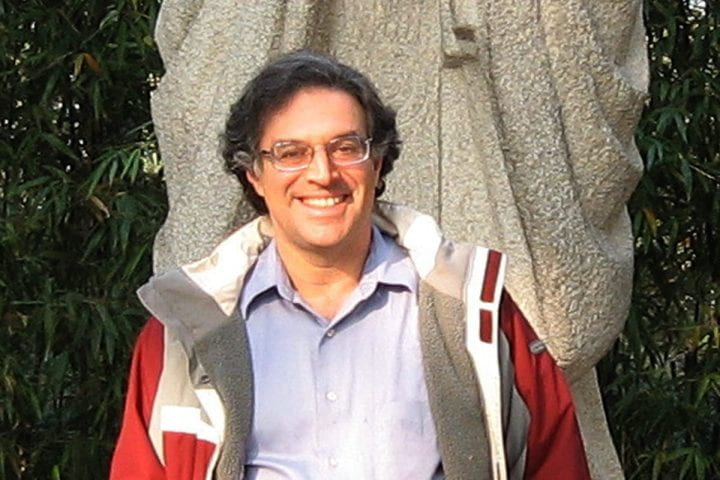Past master
Kenneth Pomeranz, UCI expert on China, is new American Historical Association president.

Historical analysis isn’t just limited to college professors and other scholars. It’s something people do all the time, often unconsciously and rather poorly, according to Kenneth Pomeranz, UC Irvine Chancellor’s Professor of history and one of the world’s leading experts on China.
“When you make a decision about a profession to go into or a neighborhood to buy a house in or a candidate to vote for, you are generally making some sort of guess about the future based on historical trends,” he says.
How the past shapes the present and future is at the heart of Pomeranz’s new role as president of the American Historical Association, the largest professional organization for historians in the U.S. Its 14,000 members include university and college faculty, K-12 teachers, archivists, museum employees, and state historical society researchers.
Pomeranz hopes to use his leadership position to address challenges facing the group’s ranks, such as how to navigate the changing rules governing intellectual property, how to participate in digital publishing and how to deal with a changing job market.
A key goal is to make potential employers more aware of the skills that history graduates have to offer. “If policy think tanks and consulting firms had more historians on staff to go with the economists and political scientists they tend to hire, they’d produce better work,” he says.
There’s little debate among scholars in his field that Pomeranz is one of the most prominent historians active today and has done much to further the public’s understanding of modern China through a historical perspective. He’s perhaps best known for his prize-winning book The Great Divergence: China, Europe & the Making of the Modern World Economy
and for his contributions to various media outlets including National Public Radio, the BBC, the History channel, and The China Beat, a popular blog he co-founded.
Part of his current research deals with politics, society and the environment in contemporary China, with a special focus on the water issues that threaten China’s economic development and social structures.
Pomeranz’ method of studying history, developed with former colleague Bin Wong, emphasizes interactions and exchanges among peoples, commodities and cultures over time, says Carolyn Boyd, professor emerita of history at UCI.
According to Boyd, it would be hard to overestimate Pomeranz’ standing in the profession, both nationally and internationally.
“What is probably most extraordinary about Ken is the range of both his interests and the areas in which his work has proved influential,” says Jeffrey Wasserstrom, UCI professor of history and author of China in the 21st Century: What Everyone Needs to Know. “I can’t think of any American China specialist, in any discipline, who is more widely read and debated in the People’s Republic of China and Taiwan.”
Journalists from around the world have asked Pomeranz to comment on issues varying from industrial air pollution in China to the organization of the 2008 Olympic Games.
Explaining China’s huge social, economic and cultural diversity can be difficult, he says, as the public thinks of the nation as a homogenous, highly centralized unit.
To illustrate its complexity, Pomeranz applies the United Nation’s Human Development Index, which combines per capita income, literacy rates, life expectancy, etc. to gauge the well-being of a populace.
“If the region around Shanghai were a separate country,” he says, “its HDI would be about the same as for Britain or Austria. If the province of Guizhou were a country, its HDI would be a bit above that of Namibia.”
Because of this incongruity, analyses of the republic can swing between wild extremes, Pomeranz says: “If you read many American accounts, one minute it sounds as if China is about to conquer the world; the next minute it sounds as if they’re on the brink of collapse.”
Fortunately, the UCI community and the public can count on him for measured, research-based information. And his work shows that history holds many modern-day lessons.
“Kenneth Pomeranz’s insight into China’s distinctive path of economic development is helpful in understanding China’s present, which is of enormous importance right now,” Wasserstrom says.